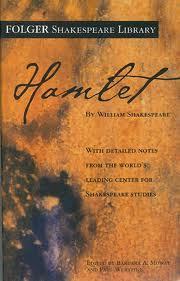The Narrative Frame: Why We Pick Certain Boxes, Or Should
Depending on how well you know me, I am either about to declare or affirm the greatness of my dork nature…
A number of weekends ago I read Hamlet for the first time. I will do my best not to get into everything that made it as amazing as I hoped it would be. Yes, I read Shakespeare for fun and entertainment on my own. Yes, I read accompanying articles and sometimes look for more. Oh, and yes, I read the same play more than once because there’s no way you can possibly get everything out of them in one pass.
My head was whirling after finishing Hamlet so I turned to the accompanying essay because I wasn’t quite ready to let go yet. I think every student in Canada has been introduced to Shakespeare through the Folger’s Library during high school? Anyway, each play they put out comes complete with an academic article. Sometimes these articles make me yawn, sometimes I come away with an empty head, and occasionally I don’t even finish them.
“Hamlet: A Modern Perspective,” was one of the great ones. It made me miss school for a fraction of a minute. Part of the final paragraph resonated with me and I desperately want to share it. I was going to do my best to paraphrase the article, but I’d hack it to pieces, so here it is in full:
If there is a better story, one that would confer on the rough matter of life the consolations of form and significance, it is, the play tells us, one that cannot finally be told; for it exists on the other side of language, to be tantalizingly glimpsed only at the point when Hamlet is about to enter the domain of the inexpressible. The great and frustrating achievement of this play, its most ingenious and tormenting trick, the source of its endlessly belabored mystery, is to persuade us that such a story might exist, while demonstrating its irreducible hiddenness. The only story Hamlet is given is that of a hoary old revenge tragedy, which he persuades himself (and us) can never denote him truly; but it is a narrative frame that nothing (not even inaction) will allow him to escape. The story of our lives, the play wryly acknowledges, is always the wrong story; but the rest, after all, is silence. (Neill, Michael. “Hamlet: A Modern Perspective.” The Tragedy of Hamlet Prince of Denmark by William Shakespeare. Ed. Mowat, Barbara A., and Paul Werstine. Folger Shakespeare Library. 1992. P. 325.)
This excerpt gives me goose-bumps, and not just because Hamlet itself is a surprisingly chilling tale. It made me think about the frames we place our characters in as writers and the boxes we construct for our stories.
The first lessons of writing are know everything about your story, world, character, etc., while you show your readers only the most pertinent bits. That’s exactly what this article is saying Shakespeare does. Everything we learn about Hamlet as a child, student, adolescent, prince, lover, and grieving heir is constructed within the narrow window the play offers. He meets his father’s ghost, learns of this uncle’s betrayal and his mother’s lack of fidelity, and is given a mission. All of this turns him into a brooding, action-less hater of women.
He tells us that he’s more than this, that he wants to be more than this, but the play and his role in it don’t permit it. It’s absolutely fascinating. Had Shakespeare taken us to a different point in Hamlet’s life the story and its main character would be completely different. It might even be a comedy involving his romancing of Cordelia. It’s the unsaid, the not-shown, that makes this play so mysterious.
Of course, all this made me think about my own writing. Where do my stories start and WHY? What makes that particular instance in my characters’ lives so relevant that that is where the story should start? Why does the story end where it does? What does the frame of my character’s narrative do to them? What doesn’t it allow them to do? How does the narrative inform/shape my story? What kind of narration will better inform my story? What does the supporting cast, and their ability/inability to inform the reader do to the story at large?
The narrative frame of any story is key. There’s always talk of the inciting incident where the story really gets going but it has to be placed properly within the story’s frame. Character evolution is integral as well, yet it has to be framed well, too.
Honestly, you could take three people from the same story and tell that story from their respective perspectives and you’d have three completely different books. You could take just one of those characters and start the story at different stages of their life and, again, you’d have three different books.
The thing to take away from this excerpt and the points I’ve kind of beaten to death is this: as soon as you think of a character you want to write about, next think about the frame that will best tell the story you want to tell. Ask yourself the questions I’ve now taken to asking myself.
The post The Narrative Frame: Why We Pick Certain Boxes, Or Should appeared first on Anxiety Ink.
Anxiety Ink
- Kate Larking's profile
- 53 followers




